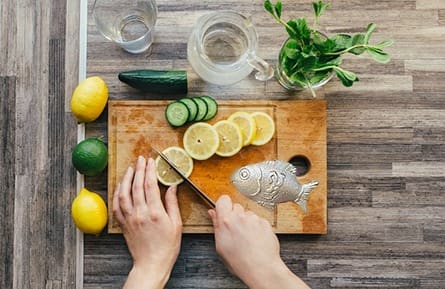 You’ve probably been hearing it everywhere: a healthy diet is so important when you’re pregnant. But sometimes, eating well is easier said than done. For example, maybe you have extreme nausea that keeps you from eating well or dietary restrictions.
You’ve probably been hearing it everywhere: a healthy diet is so important when you’re pregnant. But sometimes, eating well is easier said than done. For example, maybe you have extreme nausea that keeps you from eating well or dietary restrictions.
Many pregnant women get told by their doctors that they’re not getting enough iron. During pregnancy, the amount of iron you need increases in order to support your growing baby. Your body uses iron to make more blood to supply oxygen to your baby.
Iron is important for your baby’s brain development before and after birth. In the last three months of your pregnancy, your baby is building up an iron store. The iron that they store will last for four to six months after delivery.
Iron-deficient Anemia
Some pregnant women even develop a condition called “iron-deficiency anemia,” or IDA. It happens if your body cannot absorb enough iron to produce adequate amounts of hemoglobin – a molecule that helps red blood cells carry oxygen to the body’s tissues.
Symptoms of IDA include shortness of breath, pale skin, weakness, fatigue, irritability, and inability to concentrate.
How Much Iron Do I Need?
According to Robyn Horsager-Boehrer, M.D. of Obstetrics and Gynecology at the UT Southwestern Medical Center, the average pregnant woman needs 30 mg of iron daily. You can get this amount of iron through prenatal vitamins and a balanced diet.
The label on your prenatal vitamins should list the amount of iron in each dose. Search for the word “ferrous” in the ingredients list, which might appear as ferrous gluconate, ferrous sulfate, or ferrous fumarateone. Each form of iron is effective, and generic supplements seem to work as well as brand-name iron supplements.
Iron supports the developing placenta, meets the new demands of extra blood volume, and sustains her growing baby. 30 mg is nearly double the amount a nonpregnant woman requires. Most combination prenatal vitamins contain this much iron, but you might need more than 30 mg daily if you show iron-deficiency anemia at the start of your pregnancy.
If your doctor advises that you’re still not getting enough iron, you face a challenge. That’s because iron supplements can be really hard on your stomach. Side effects of iron include nausea, vomiting, constipation, and diarrhea. You might try different formulations of iron until you can find one your stomach tolerates.
The Lucky Iron Fish
If your doctor tells you to up your iron intake, but you can’t stomach regular supplements, try the Lucky Iron Fish! This cute little fish is a simple, reusable cooking tool that adds extra iron to your daily foods and drinks. Made from food-grade electrolytic iron powder, the Lucky Iron Fish is FDA certified. Visit the Lucky Iron Fish blog to get iron-fortified recipe ideas.
To use, you just boil the fish in water or broth. Then, when you add a few drops of citrus, the fish tool releases 5 to 10 mg of iron. You could even save your iron-infused water and cook another dish with it. This iron fish helps add the iron that is so important for you and your growing baby. It makes boosting your iron levels so much easier!
The Lucky Iron Fish lasts up to 5 years, and it doesn’t change the taste of your food. You can buy one at LuckyIronFish.com, or on Amazon.
Editor’s Note: This article was originally published on September 13, 2017, and has since been updated.
